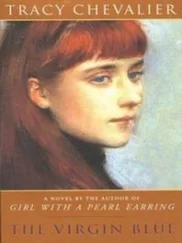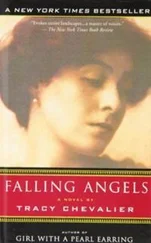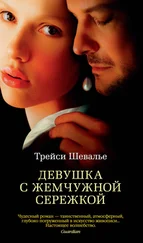“What did she say?” he asked.
“Not much-didn’t need to. She wants to see you, of course. It’s lucky you turned up when you did!”
“Where is she now?”
“I told her I didn’t know when you’d be passin’ through next, and that she should get herself a room and wait, and we’d try to get word out to you since it’s urgent. She said she couldn’t afford it, so I told her to rest herself here a day or two, then get a lift back to Murphys where the rooms are cheaper and more plentiful.”
Robert’s mind rested on the one word both Billie and Nancy Lapham had used: urgent. He could only think of one reason why it might be urgent. “Where is she-resting?”
“In the barn. Billie knows. I told her to keep out of Haynes’ way. That man would happily throw out a woman in her state, just like the innkeeper in Bethlehem. So she’s stayin’ out of sight.” Nancy’s speech was getting slower and more garbled as she grew tired, and Robert wasn’t sure he understood. Or he did, and didn’t want to.
“What do you mean? Nancy?”
Nancy’s eyes were closed. He waited with increasing impatience for her to rouse herself, but this time she slept. If he wanted to confirm why Molly was here, he would have to find her himself.

She wasn’t in the barn. Robert wasn’t surprised-it was stifling inside. Molly wasn’t in the stables looking at the horses as she liked to do sometimes at French Creek. She wasn’t on the porch, pretending to be a visitor having coffee. She wasn’t in the saloon, or the bowling alley, or at the Great Stump, or in the kitchen chatting to the cooks.
He returned to the barn again to make sure she hadn’t gone back while he was looking for her elsewhere. There he ran into a young hand, forking hay into a wheelbarrow to take to the horses. “You lookin’ for the lady?” the boy said. “The one like this?” And he made the gesture Robert had feared since Billie and Nancy Lapham had both smiled at him: the unmistakable curve of a belly carrying a child.
“You know where she is?”
“She was here, but she went to see the trees.” The boy grinned as Robert turned and stumbled out into the fresh air.
He had never asked Molly about babies. He’d never asked her much about herself since their first few nights together. As far as he knew she’d not had any. But nor had she made him withdraw early or wear something on his cock. He knew there were things women did to prevent babies involving hot baths and mustard or vinegar, or visits to doctors. They were women’s things he did not ask about, or feel he needed to know about.
If she was as big as the stable hand had indicated, she must have already been pregnant the last time he’d seen her four months before. She’d said nothing, though Robert tried to think back to how she’d been. Had her stomach swelled and tightened like a drum? Had her already substantial breasts gotten bigger? He couldn’t recall. His visits to Molly’s bed blended into one long session of sweaty flesh and rumpled sheets, of a release that only ever scratched the surface of his itch, no matter how often he entered her. That a child would emerge from that chaotic pleasure seemed improbable. But then, his parents had had ten children that way. He shook his head, standing in the sun, the sequoias flashing red in the distance.
He headed out to them. A trail wound among the big trees for the ease of visitors, but Robert ignored it, for walking through undergrowth did not bother him. Apart from making the path, Billie Lapham and his various partners had also named some of the trees, hanging signs on them. Visitors liked that, for they wanted a way to differentiate between the sequoias and make sense of them. So there were the Two Sentinels at the entrance to Calaveras Grove. Nearby was the Discovery Tree, which the hunter from Murphys first saw when he was chasing a grizzly bear; it was the sequoia that had been felled and now had the bowling alley built on it. Then there were the Three Graces, a trio of beautiful trees standing side by side. The Old Bachelor, a rough tree. The Hermit, a tree that stood alone. The Siamese Twins, with two trees growing out of one trunk. The Burnt Tree, which had fallen and been burnt hollow by lightning so a person could ride through it on horseback. Robert hated the signs; he hated the names. Occasionally he thought about stealing all the signs and burning them, but he knew they would just be replaced.
Another fallen sequoia had broken in two when it came down, and parts of it were half buried. Billie Lapham had measured these parts and estimated that the tree was the largest in the grove, at over four hundred feet long. Robert thought the length exaggerated, but Billie Lapham stood by his measurements, and named the tree Father of the Forest. Whenever Robert saw it he thought of his father, and so he avoided it.
He also stayed away from Mother of the Forest, which made him even sadder, for its bark had been stripped over a hundred feet up the tree, to be shipped to New York and exhibited for those skeptics who thought the sequoias were a tall tale. The trunk was naked except for the scaffolding it was still clad in. Robert assumed this was to show visitors how it had been done; otherwise he could not imagine why Billie Lapham would leave up something so ugly. For a couple of years Mother of the Forest seemed to suffer no ill effects from this stripping, but Robert had noticed recently that its foliage was thinning. He suspected it would eventually die, after hundreds, maybe even thousands of years free from human touch. Robert liked Billie Lapham, but hated what he and his partners had done in the name of promoting the Calaveras Grove trees.
There were other family groups: Mother and Son, with a larger and smaller tree, their foliage touching. Husband and Wife, leaning towards each other. The Three Sisters. He did not find Molly by any of these trees, though. Instead she had chosen to sit under the Orphans, two sequoias on the eastern edge of the grove, which stood so close to each other they seemed to have grown from the same root, with their branches entwined. She looked very small sitting under those giant trees, though when she saw him and struggled to her feet, already starting to cry, Robert saw that Nancy and Billie Lapham had been right about her condition. She was very close to having a baby.
They were wrong, though, about the other important thing. Very wrong. It was not Molly. It was Martha.
When he recognized his sister, eighteen years after leaving her hidden up an apple tree, a smile crossed Robert’s face like a crack in plaster. He smiled so hard his face hurt, and he realized that he had not smiled with such deep pure joy since he was a boy.
Black Swamp, Ohio: Fall 1838
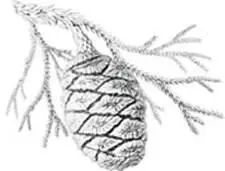
“ROBERT, BRING ME SOME cold water.”
“Martha, git me another quilt!”
James and Sadie Goodenough spoke at the same time, and had to repeat themselves before their words could be untangled and understood. They were lying side by side in their bed, flat on their backs. James held himself as rigid as possible to counter the shakes that racked his body. This was how he had always dealt with swamp fever-fighting it by not succumbing to its demands. If he felt cold he refused to wrap himself in quilts. If his teeth were chattering he gripped his jaw tight. His only concession was water: if he was thirsty, he drank, demanding cold water freshly drawn rather than taking it from the pitcher left on the floor by the bed.
As expected, Sadie had a different response to illness: she indulged in it. If she was thirsty she drank the whole pitcher dry. When she shook she rattled the bed so much James thought he would fall off. During a spike in her fever she would talk all sorts of gibberish, laughing and swearing and holding imaginary conversations, sometimes with other men in a way that embarrassed him. Now she was cold, and rubbed her arms more vigorously than she needed to. Rolling around in the bed, she pulled the quilt off James, then called again for another.
Читать дальше
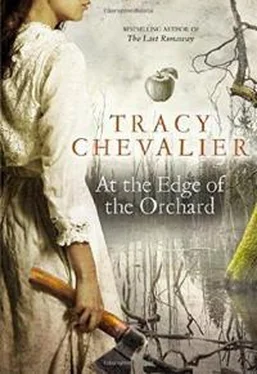



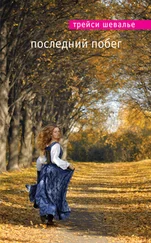

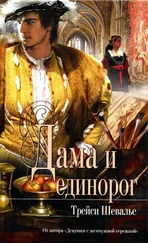

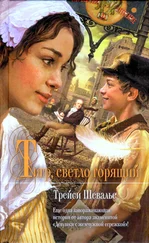
![Трейси Шевалье - Тонкая нить [Литрес]](/books/386177/trejsi-shevale-tonkaya-nit-litres-thumb.webp)
